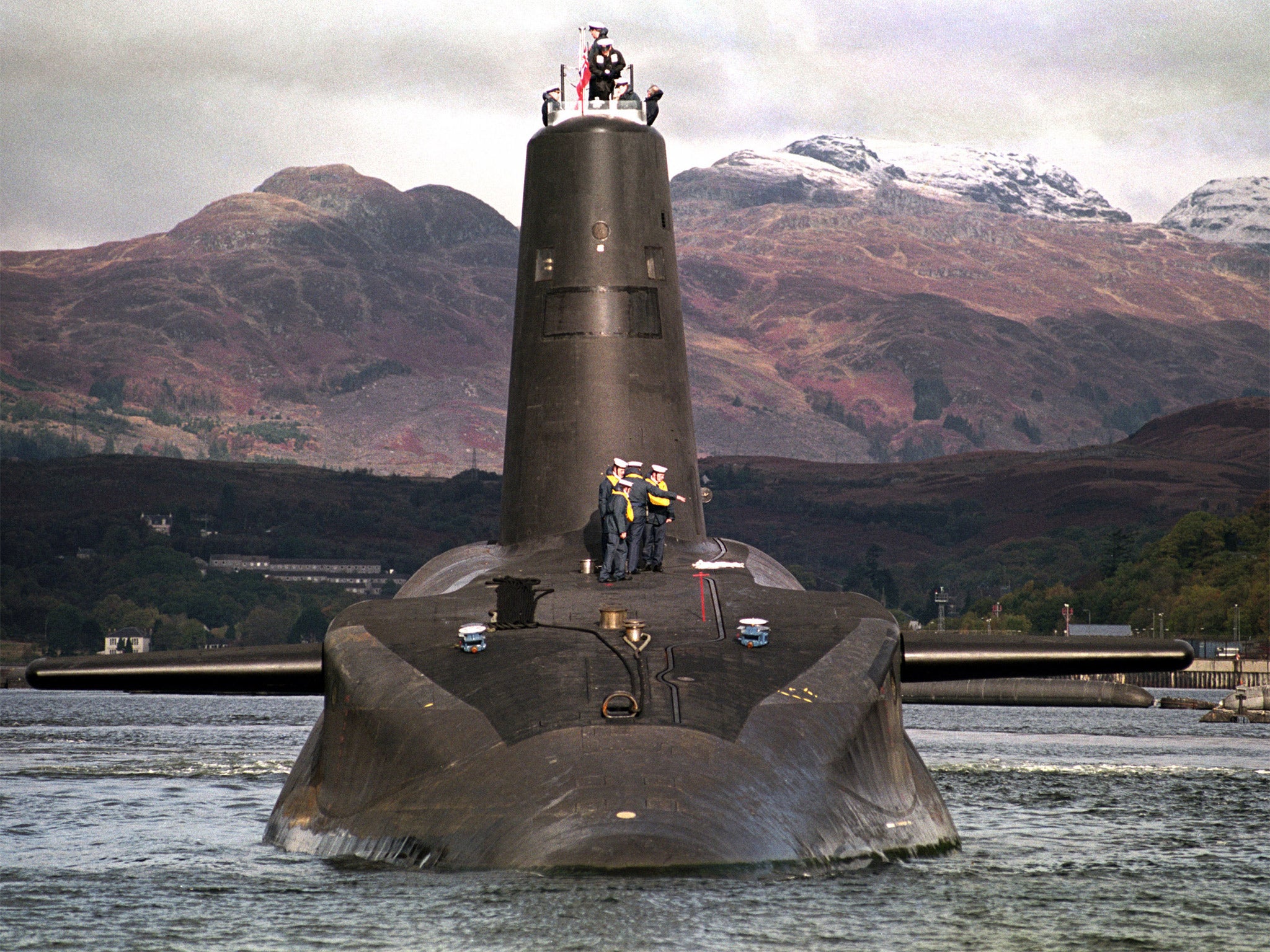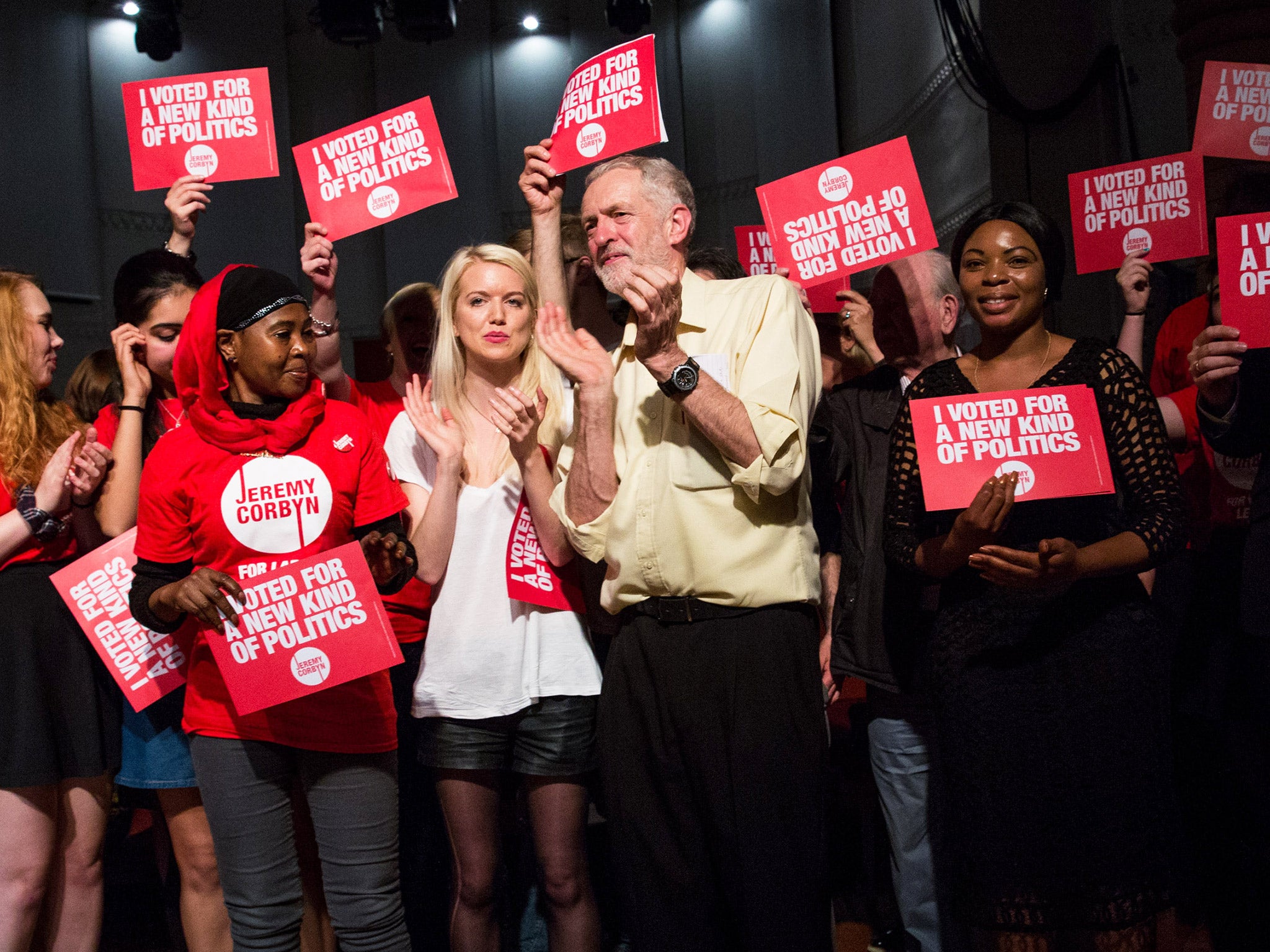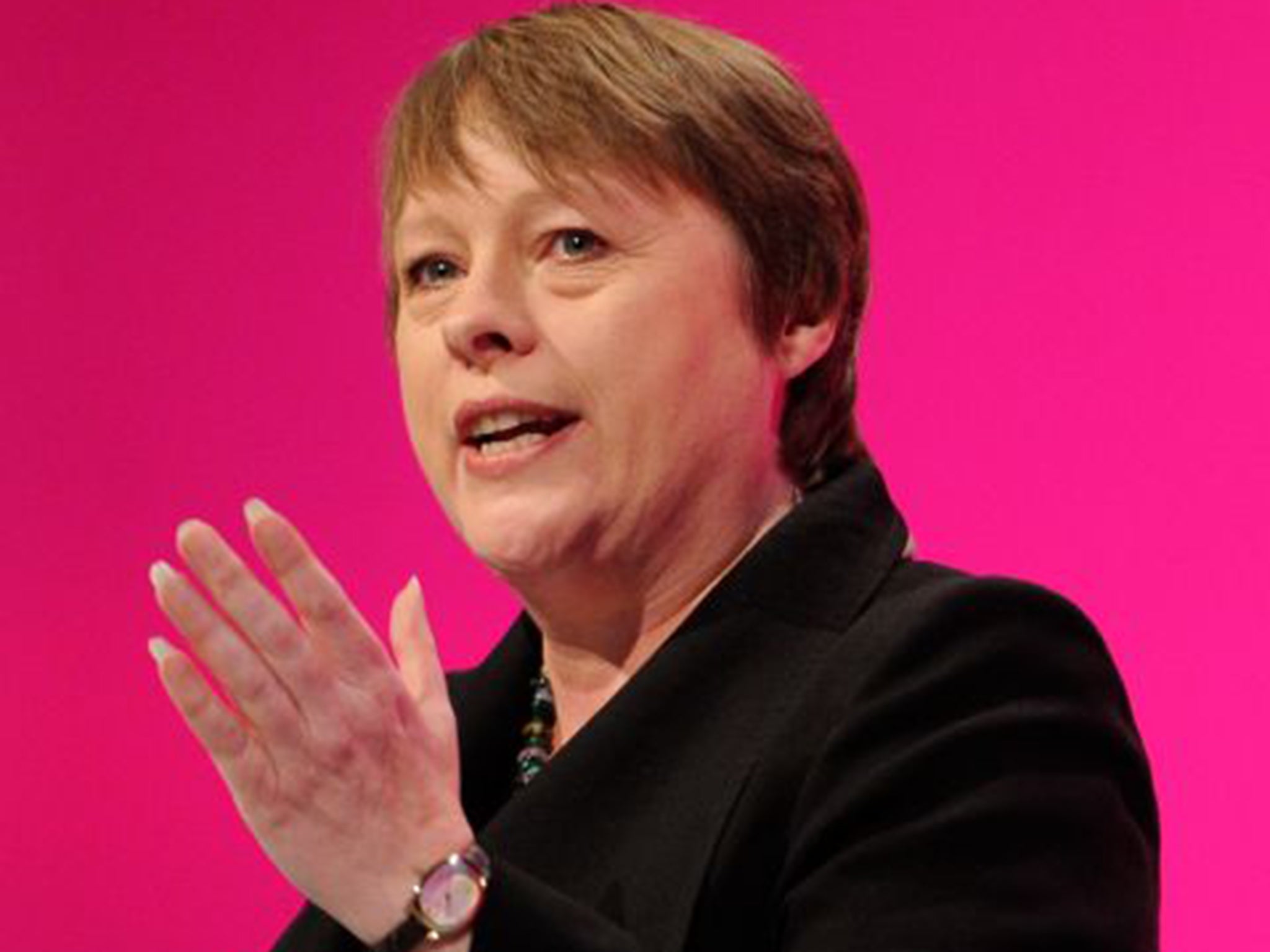Trident: Jeremy Corbyn may call ballot of Labour's members on whether to abandon renewing nuclear weapons
Exclusive: Labour leader considers move as part of his plan to overturn the party’s pro-Trident position

Your support helps us to tell the story
From reproductive rights to climate change to Big Tech, The Independent is on the ground when the story is developing. Whether it's investigating the financials of Elon Musk's pro-Trump PAC or producing our latest documentary, 'The A Word', which shines a light on the American women fighting for reproductive rights, we know how important it is to parse out the facts from the messaging.
At such a critical moment in US history, we need reporters on the ground. Your donation allows us to keep sending journalists to speak to both sides of the story.
The Independent is trusted by Americans across the entire political spectrum. And unlike many other quality news outlets, we choose not to lock Americans out of our reporting and analysis with paywalls. We believe quality journalism should be available to everyone, paid for by those who can afford it.
Your support makes all the difference.Jeremy Corbyn may call a ballot of Labour’s 393,000 members on whether the party should abandon its support for renewing Britain’s Trident nuclear weapons system.
The Labour leader is considering the move as part of his plan to overturn the party’s pro-Trident position. A vote by members in favour of unilateral nuclear disarmament, in line with Mr Corbyn’s views, would not be binding but would put enormous pressure on the party’s defence policy review to come out against Trident.
In a speech to Labour activists on 21 November, Mr Corbyn promised “a democratic revolution” to give members greater influence over policy. He asked: “Why not give members the chance to take part in indicative online ballots on policy in between annual conferences - and give our grassroots members and supporters a real say?”

Last night Corbyn aides said he was floating the idea of ballots and there was not yet a mechanism that allowed them. They added that a membership vote on Trident was “not ruled in, and not ruled out.”
The Scottish Labour Party voted against Trident renewal this month in a move warmly welcomed by Mr Corbyn. Despite criticism of his performance by some Labour MPs, the Labour leader still enjoys strong grassroots backing. A YouGov survey on 24 November showed that 65 per cent of Labour members and registered supporters believe he is doing “well”.
Many Labour MPs support Trident, including Shadow Cabinet members such as Maria Eagle, the shadow Defence Secretary, who is co-chairing the policy review with Ken Livingstone, a Trident opponent.
Labour is also deeply divided over whether to back David Cameron’s call to extend RAF air strikes against Isis in Iraq to Syria. Mr Corbyn, who opposes intervention, has called two special meetings of the Shadow Cabinet on 26 and 30 November to try to agree a common front. With several frontbenchers backing action in Syria, he is under pressure to allow his MPs a free vote.
In the Commons, 14 Labour MPs defied Mr Corbyn by voting against a motion tabled by the Scottish National Party opposing Trident renewal. It was rejected by 330 votes to 64, as Conservative MPs defeated the move. Most Labour MPs obeyed the party line to abstain on the grounds that the SNP-called debate was a “stunt.” But six Labour MPs who oppose Trident voted in favour of the SNP call.
John Woodcock, chairman of Labour’s backbench defence committee, who opposed the SNP motion, told Tory ministers that Labour MPs would support the £31bn scheme for four new nuclear submarines in a Commons vote due next year. He said: "I can give you the pledge that Labour MPs will help you get through the programme that we started in government.”

Mr Woodcock provoked complaints by furious SNP MPs to Eleanor Laing, the Deputy Speaker, by describing them as “robots.”
Opening the debate, Brendan O'Hara, the SNP’s defence spokesman, said: "Trident is not a military weapon. Trident is a political weapon - and it is a political weapon which can never and will never be used except to consume anything between 30 per cent and 50 per cent of the UK defence procurement budget." He said it was a "military and political ego trip" adding the money could be better spent peacekeeping, reacting to emergencies such as the Ebola crisis, or helping refugees in the Middle East.
Michael Fallon, the Defence Secretary, claimed Labour's "shambles" over Trident would provide comfort to Britain's enemies. “Today we find a leader of the Labour Party opposing his party's official policy. He wants to scrap Trident and he said that he's no longer prepared to use it,” he said.
Toby Perkins, a Labour defence spokesman, said: “All of us who support maintaining a nuclear presence should not be afraid to allow open and honest debate of this important issue. It would clearly be ludicrous for me to pretend there aren't differences of opinion within the Parliamentary Labour Party and the wider party on whether this is the right policy. In the end, national party conference and the national policy forum decide what the Labour Party's approach to this question will be.”
Join our commenting forum
Join thought-provoking conversations, follow other Independent readers and see their replies
Comments